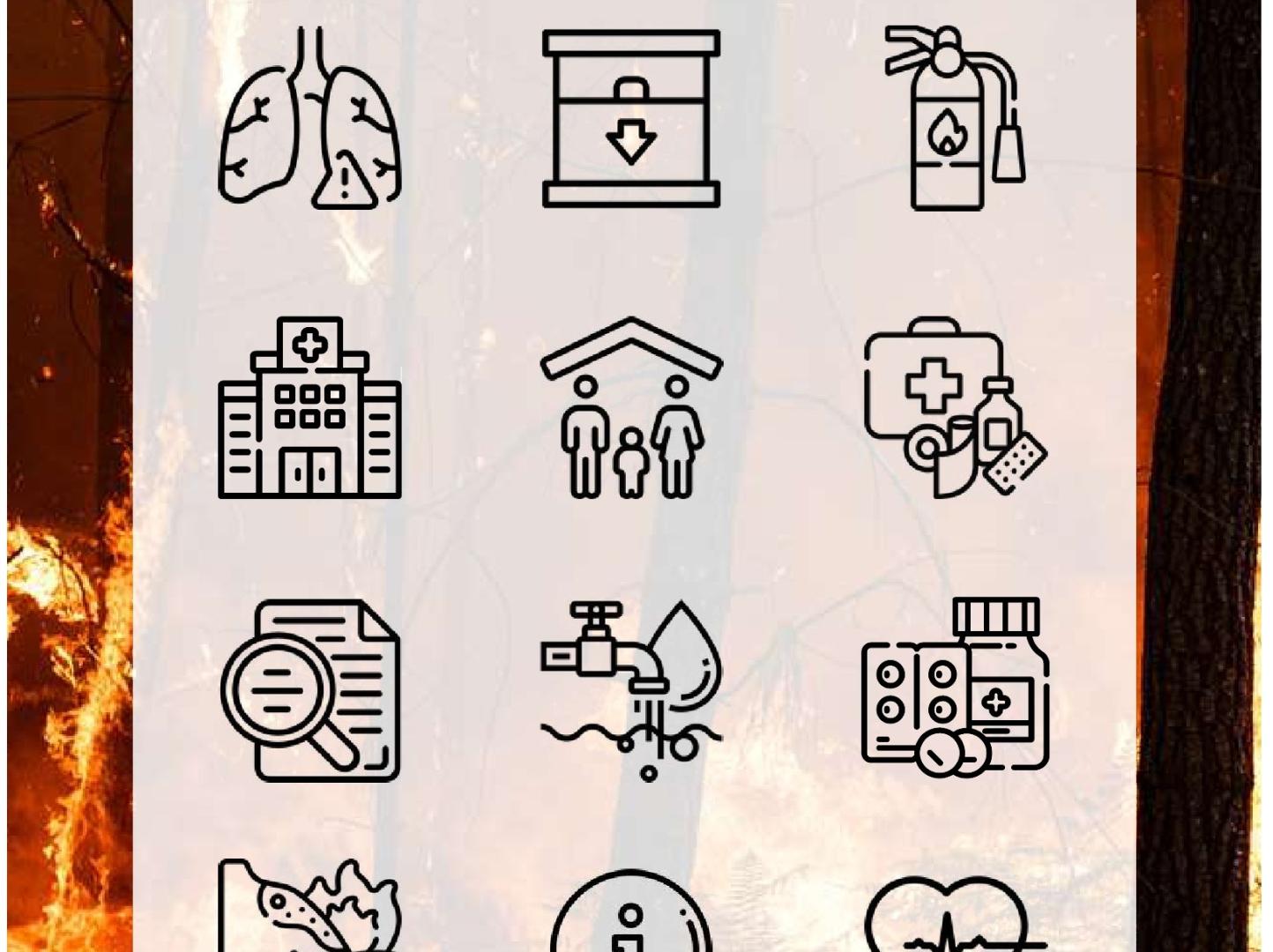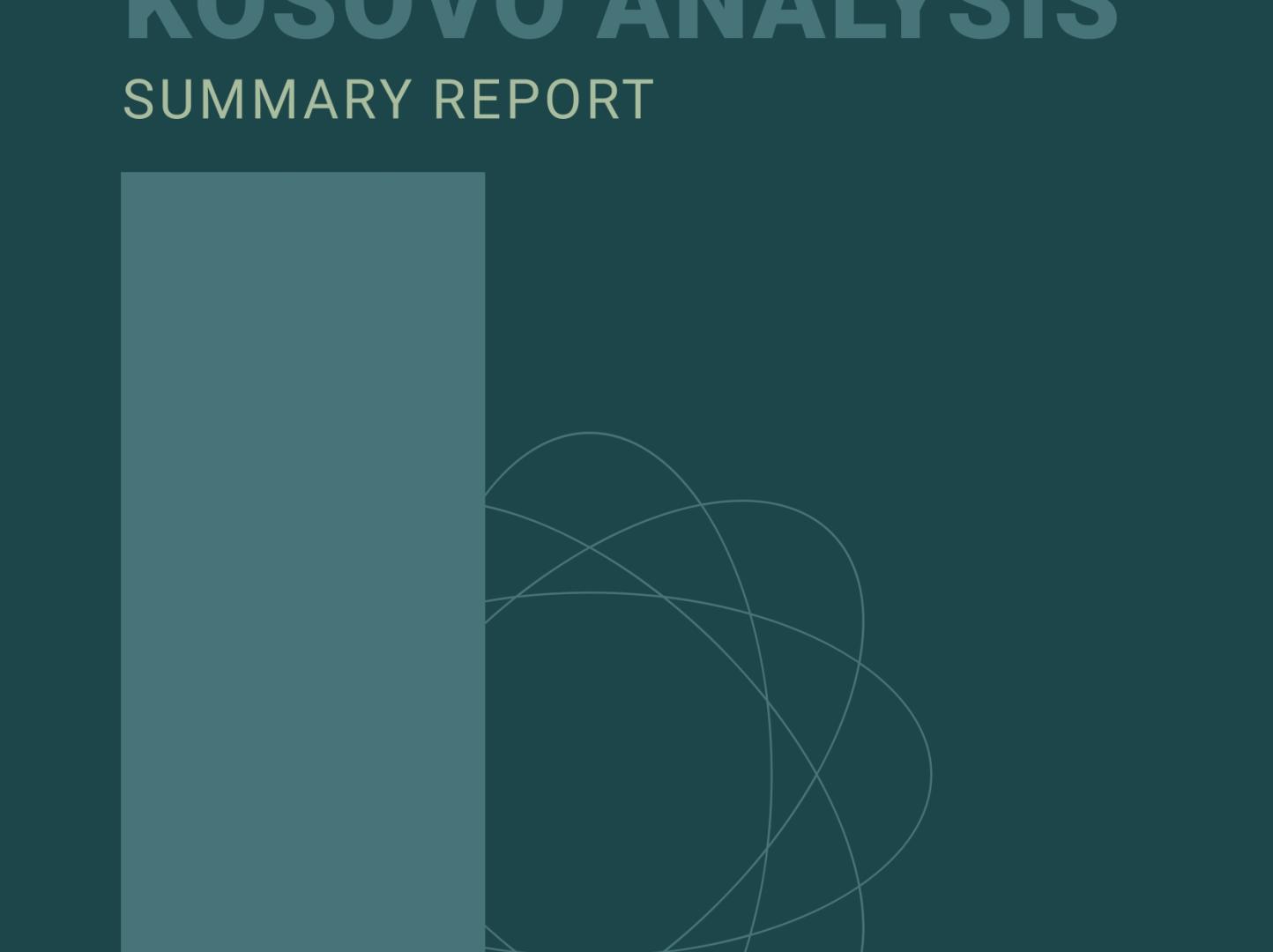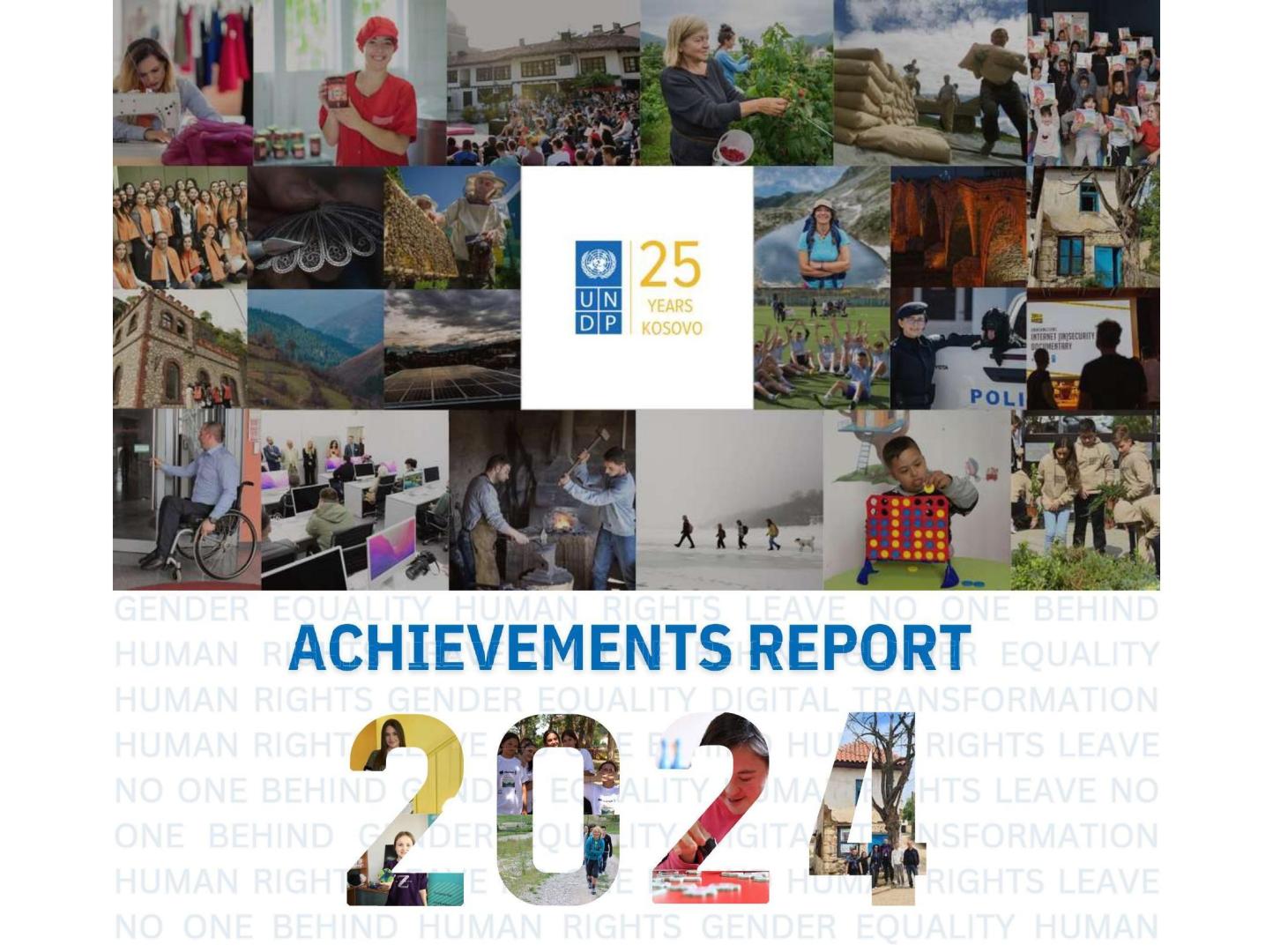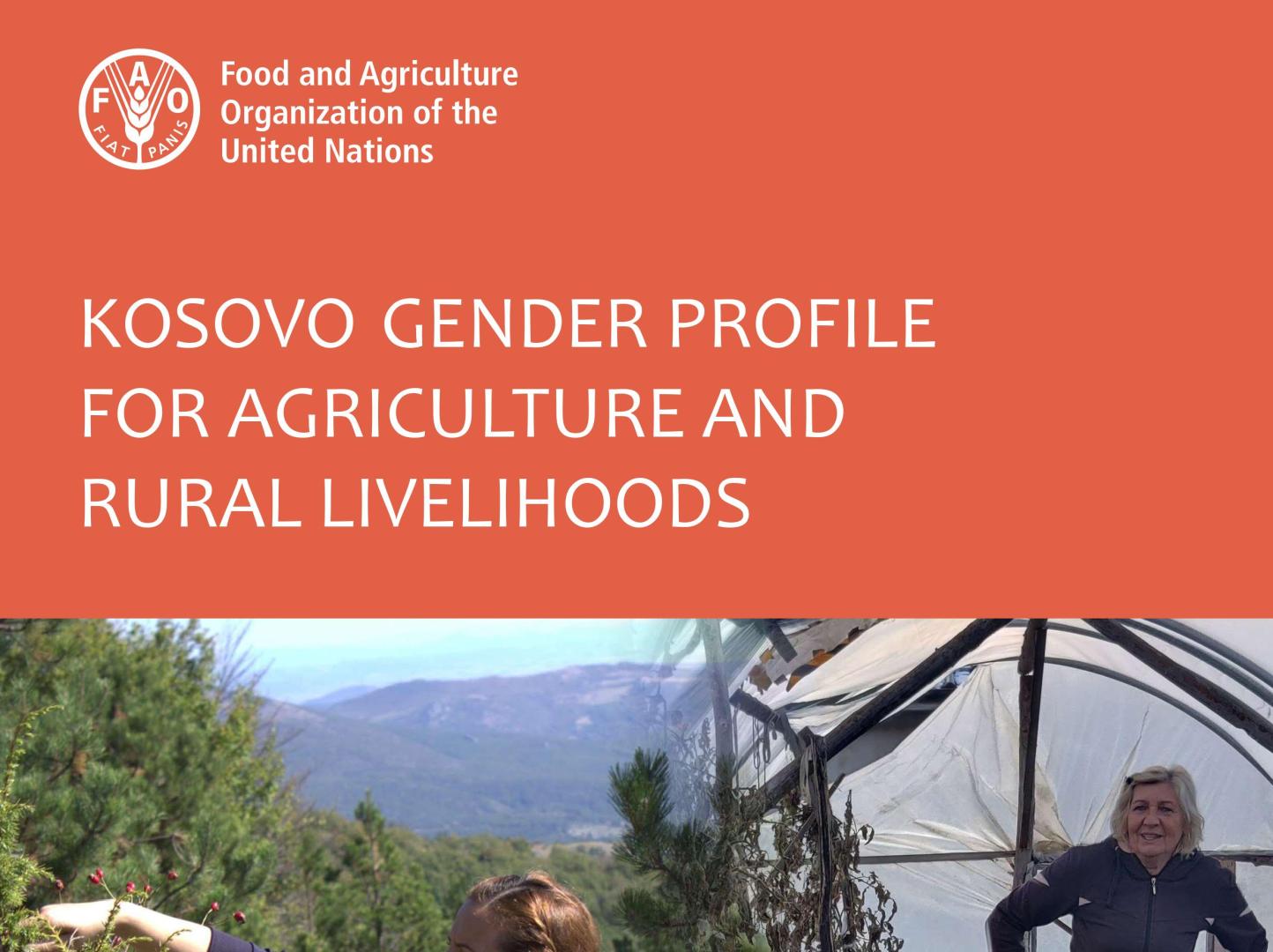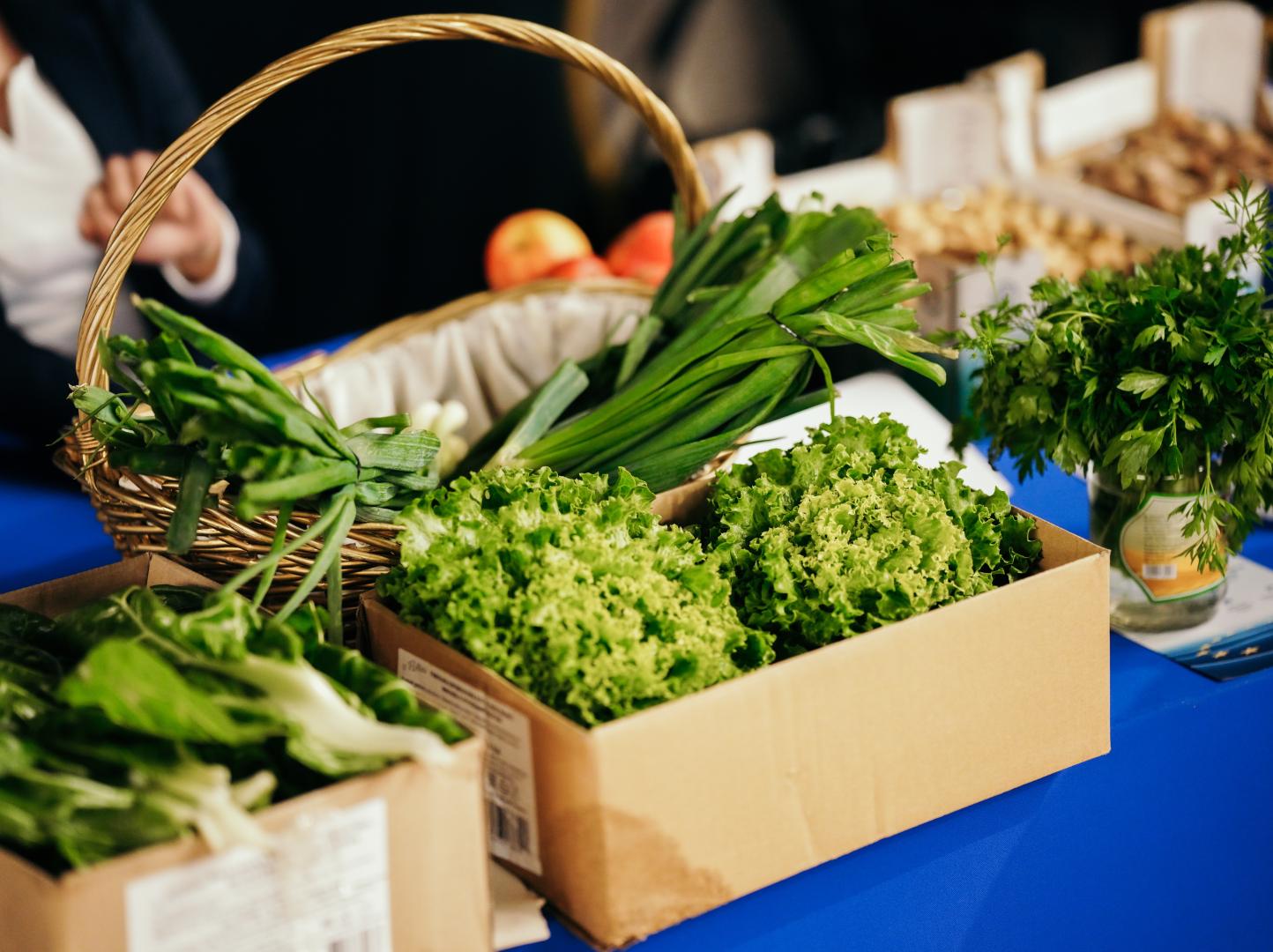Latest
Story
26 November 2025
International Partners Share Approaches to Ending Violence Against Women at the national 16 Days Conference
Learn more
Story
31 October 2025
Decarbonization and timely adaptation necessary for an effective response to climate change in Serbia
Learn more
Story
29 October 2025
Together for visible and valued care work on the International Day of Care and Support
Learn more
Latest
The Sustainable Development Goals in Serbia
The Sustainable Development Goals are a global call to action to end poverty, protect the earth’s environment and climate, and ensure that people everywhere can enjoy peace and prosperity. These are the goals the UN is working on in Kosovo:
Story
18 June 2024
Matilde Mordt Assumes Role as New UN Resident Coordinator in Serbia
Belgrade, June 17, 2024 – Matilde Mordt has officially assumed her duties as the new United Nations Resident Coordinator in Serbia following a credentials presentation to the Minister of Foreign Affairs, Marko Đurić which marks the beginning of her role in enhancing the collaboration between Serbia and the United Nations.With more than three decades of experience, Ms. Mordt brings extensive knowledge in the areas of the 2030 Agenda for Sustainable Development, environment and climate change, governance, social policy, and disaster risk reduction. Her previous positions include serving as the UN Development Programme (UNDP) Resident Representative in Ecuador, and various leadership roles within the UNDP in Nicaragua, Paraguay, Argentina, and at the regional hub for Latin America and the Caribbean in Panama. She has also been involved in research and teaching on sustainable development and climate change.Ms. Mordt holds a PhD in Human and Economic Geography with a specialization in livelihoods and sustainability, a master’s degree in international economics and business administration, and a Bachelor’s in social studies from the University of Gothenburg, Sweden. Her appointment is expected to further strengthen the ongoing cooperation and development efforts between Serbia and the United Nations.
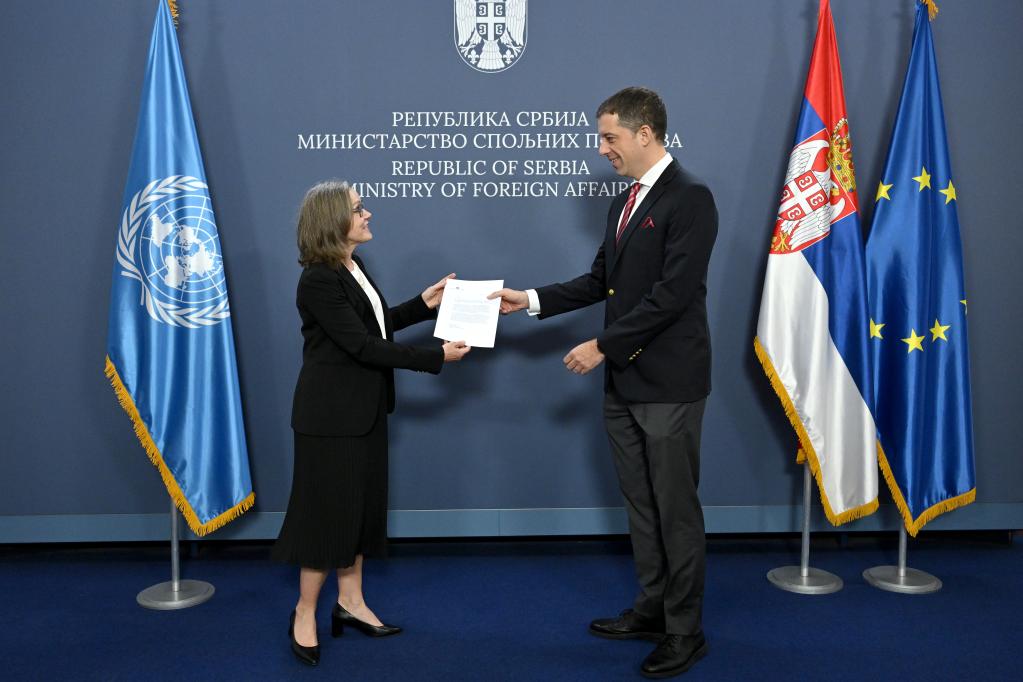
Story
26 November 2025
International Partners Share Approaches to Ending Violence Against Women at the national 16 Days Conference
Belgrade, 26 November 2025As part of the 16 Days of Activism against Gender-Based Violence, senior diplomats and international organisations gathered at the Second National Conference “Equal. Safe. Empowered.” to discuss how international practices can strengthen Serbia’s response to violence against women and girls.During the second panel, UN Resident Coordinator in Serbia Matilde Mordt opened the exchange by highlighting Serbia’s progress under the Law on Prevention of Domestic Violence and the Government’s commitment to align upcoming reforms with the Istanbul Convention. She underscored the urgency of addressing high femicide rates, the fast-growing threat of digital violence, and the particular risks faced by Roma women, women with disabilities, rural women, older women and LBTIQ+ persons. Mordt emphasised that international frameworks such as the Istanbul Convention and CEDAW provide strong guidance for strengthening institutional responses and reaffirmed the UN’s continued support to Serbia in building a society where every woman and girl is safe.Her intervention was followed by other panelists who shared experiences from their national systems. Michèle Cameron, Ambassador of Canada, reflected on Canada’s National Action Plan to end gender-based violence and its focus on prevention through education and community programmes. Carlotta Colli, Deputy Ambassador of Italy, spoke about Italy’s recent reforms, including the legal recognition of femicide and the expansion of shelter and crisis services—measures that have drawn significant attention across Europe. Florence Ferrari, Ambassador of France, outlined France’s long-standing work to reinforce institutional responsibilities and strengthen the legal framework through sustained awareness campaigns. Fabio Scano, WHO Regional Director for the Western Balkans, underlined the central role of the health sector in identifying and responding to violence, highlighting the need for trained professionals, standardised protocols and closer cooperation across institutions.Moderated by Nevena Jovanović, State Secretary in the Ministry of Foreign Affairs, the panel reinforced a shared understanding that sustained cooperation between institutions, civil society and international partners remains essential to improving protection mechanisms and ensuring that every woman and girl in Serbia can live free from violence.
1 of 5

Story
31 October 2025
Decarbonization and timely adaptation necessary for an effective response to climate change in Serbia
Belgrade, October 31, 2025 - Representatives of national institutions and international organizations, as well as experts in fields related to climate change, discussed today at the "Climate Talks" Serbia's strategy for advancing decarbonization, as well as possible solutions for droughts that are increasingly affecting agriculture, energy and local communities.The event was traditionally organized by the Ministry of Environmental Protection in partnership with the United Nations Development Program and the United Nations team in Serbia. Minister of Environmental Protection Sara Pavkov, opening the event, highlighted that since the previous meeting, the Ministry of Environmental Protection has taken significant steps to strengthen the framework for combating climate change, including the adoption of the Third Nationally Determined Contribution (NDC)."This is our most ambitious goal so far, as the Republic of Serbia has committed to reducing greenhouse gas emissions by 40.1% compared to 1990 levels by 2035. This target is four times higher than the first NDC from 2015 and significantly exceeds the 2022 goal. It demonstrates Serbia's strong commitment to implementing the energy transition, strengthening resilience to climate risks, and accelerating the green transformation of society", said minister Pavkov, adding that several other important frameworks have been adopted, which are crucial for achieving the goals of the Green Agenda for the Western Balkans and fulfilling obligations under the UN Framework Convention on Climate Change and the Paris Agreement.The acting UN Resident Coordinator and UNDP Serbia Resident Representative, Yakup Beris, reiterated the recent warning of the UN Secretary General Antonio Guterres that the increase in the average global temperature in the next few years will exceed the limit of 1.5°C, a red line agreed ten years ago by the Paris Agreement. Some climate impacts are now unavoidable, which is why adaptation is not optional, but essential.“To support Serbia in responding to climate change, the United Nations and UNDP are assisting in improving the legislative framework, implementing innovative and practical solutions for the decarbonization of industry, and researching the potential use of geothermal energy and biogas. We are also working to improve climate risk assessment and to integrate sustainable strategies in sectors such as agriculture and energy”, Beris said.Ambassador of the Federative Republic of Brazil to Serbia, H.E. Maria Clara de Abreu Rada, stressed that COP 30 will offer a critical moment to collectively address the gaps that threaten the credibility of our climate governance infrastructure.„We must ensure that ambition is matched by implementation – and that developing countries receive the financial support, technology and capacity they need to act decisively. We need a clear, just, and orderly pathway beyond fossil fuels and towards sustainable energy sources“, said H.E de Abreu Rada an added that Brazil has recently invited the Government of Serbia to support its initiative which aims to quadruple the use of biofuels by 2035.Head of Cooperation in the Delegation of European Union to Serbia, Mauro di Veroli, emphasized that we are at a crucial and complex moment for climate action.“Ten years have passed since the Paris Agreement, marking a turning point in our collective journey towards joint stewardship of our planet and its resources. The pace of global climate action however remains far too slow, and ambitions must scale up significantly to address the challenges ahead of us. The European Union is committed to support Serbia in climate action, including through investments in crucial infrastructure, providing policy advice, building capacities and assisting Serbia in aligning with the EU climate acquis,” explained di Veroli.Ambassador of Switzerland to Serbia H.E. Anne Lugon-Moulin pointed out that only by working together, we can turn climate goals into concrete action that benefits both people and the planet.„Switzerland strongly supports Serbia’s efforts to accelerate decarbonization and advance the Green Agenda. Together with partners such as UNDP and international financial institutions, we are helping turn climate goals into tangible and measurable results on the ground. Our shared goal is clear: reducing emissions, building a more resilient economy, and improving the quality of life for all citizens”, said H.E. Lugon-Moulin.Opening the panel dedicated to drought, the Ambassador of Sweden H.E. Charlotte Sammelin, said that response to that silent crisis must be rooted in resilience, restoration, and international cooperation.“Drought is no longer a distant threat—it is a present and pressing reality. In Serbia, its impact spans over agriculture, energy, and ecosystems, exposing deep vulnerabilities. Sweden is proud to support Serbia’s efforts to build climate resilience, restore wetlands, and promote sustainable solutions that protect both people and nature,” added H.E. Ambassador Sammelin."Climate Talks: Play for Climate Action" was held on the eve of the 30th Conference of the Parties to the UN Framework Convention on Climate Change, which is taking place from 10 to 21 November in the Brazilian city of Belém.
1 of 5

Story
29 October 2025
Together for visible and valued care work on the International Day of Care and Support
Caring for others should never be invisible – this was the message marking the International Day of Care and Support, held on 29 October 2025 in Belgrade. The event brought together representatives of institutions, civil society and the private sector, as well as caregivers who provide daily support to family members, people with chronic illnesses and persons with disabilities.Informal caregivers, most often family members, provide more than 80 per cent of total care in society. Nevertheless, their work remains unrecognized and often unpaid. As the Minister without Portfolio in charge of Gender Equality, Prevention of Violence against Women, and Economic and Political Empowerment of Women Tatjana Macura emphasized, unpaid care work carries enormous social and economic value. “Women in Serbia spend twice as much time as men on housework and family care. Such an unequal division of responsibilities affects their professional and financial position, as well as society as a whole. Care must become a shared responsibility of the state, the community and families.”“We want to advocate for regulations that protect caregivers, ensure fair compensation and promote gender equality in sharing care responsibilities. Let us build a society where care is not only a private burden but a shared public responsibility. We call on all – decision makers, healthcare workers, civil society organizations and leaders – to join us in shaping a future where care is valued, supported and shared,” said H.E. Charlotte Sammelin, Ambassador of Sweden to the Republic of Serbia.Data show that women perform as much as 76 per cent of unpaid care work, and it is estimated that by 2030, 2.3 billion people worldwide will depend on the care and support of others. Milana Rikanović, Head of UN Women Serbia, highlighted that care is both a gender equality and an economic issue: “Care is not only a moral, but also an economic question. The value of unpaid care work performed by women in Serbia is estimated at about one fifth of the country’s GDP. UN Women supports changing the way we understand and value care – through economic analyses, legal recommendations and support for local initiatives that strengthen caregivers.”Participants agreed that it is necessary to develop systemic mechanisms to recognize and support caregivers – through the right to leave, accessible services, training and psychosocial support. As an example of good practice from the private sector, a new regional initiative by the company Merck was presented, which allows employees ten days of paid leave per year to care for a family member, along with additional counselling and training opportunities. The event also brought together representatives of patient associations and caregivers, who shared their personal experiences and spoke about the challenges and needs of those who provide care for others.Informal caregivers take pride in their role, but the support they deserve is not only a matter of human rights - it is a social investment that benefits everyone. It is time for their work to become visible, recognized and valued.This activity was implemented with the support of the joint project “Ending Violence – Achieving Equality”, carried out by UNDP, UNFPA, UNICEF and UN Women in partnership with the Government of the Republic of Serbia, with the support of the Government of Sweden.
1 of 5

Story
24 October 2025
Eighty years of the United Nations: Serbia and the UN highlight concrete results of long-term cooperation
Belgrade, 24 October 2025 — The United Nations in Serbia and the Government of the Republic of Serbia marked the 80th anniversary of the founding of the United Nations with a joint event at the Museum of Yugoslavia in Belgrade.The event gathered representatives of the Serbian Government, the diplomatic community, international partners, civil society, youth and media to celebrate eight decades of the United Nations’ global mission — and the close cooperation between Serbia and the UN in advancing shared development goals.In her remarks, Matilde Mordt, United Nations Resident Coordinator in Serbia, underlined that the UN–Serbia partnership is built on trust, shared priorities, and tangible results that improve people’s lives.Eighty years on, the United Nations remains proof that global cooperation can deliver real progress when grounded in partnership and purpose,” said Mordt. “Here in Serbia, that means translating shared values into action — building institutions that serve people, supporting communities that drive change, and working together to find solutions that make a real difference.” Dominika Krois, Representative and Director of the United Nations Office in Belgrade, emphasized Serbia’s contribution to international peace and the importance of multilateral cooperation.“Serbia has been a dedicated contributor to United Nations peacekeeping operations, and it reflects Serbia’s strong support for multilateralism and its belief in the UN’s role as a cornerstone of global peace and stability.” Representing the Government of the Republic of Serbia, Katarina Lalić Smajević, Assistant Minister of Foreign Affairs, reaffirmed Serbia’s continued engagement with the United Nations and commitment to multilateralism.“Serbia stands committed to the principles and purposes enshrined in the UN Charter as they have no alternative. Despite numerous challenges the great majority of countries around the world still believe and stand by the value and strength of the UN and its Charter. This is a global forum in which all countries of the world have a voice. This is quite an accomplishment that should be reinforced. Let us all work together so that the Charter of the UN fulfils its noble promise to the world,” said Lalić Smajević. Guests also had the opportunity to visit the photo exhibition “From Global Goals to Local Lives,” showcasing stories of people and communities across Serbia — from young innovators and women entrepreneurs to Roma health mediators and local officials improving public services with UN support.Following the main ceremony, the programme continued with the launch of “The UN at Country Level: A Practical Guide to the UN Operational System,” published by the Swiss Federal Department of Foreign Affairs, and the panel discussion “From Global Goals to Local Lives in Serbia.”Jointly organized by the Embassy of Switzerland and the United Nations Country Team in Serbia, the panel brought together UN partners and beneficiaries to share real-life stories of cooperation — from women’s rights and social inclusion to local economic growth and environmental initiatives.The day’s programme showcased how the partnership between Serbia and the United Nations delivers lasting change — through collaboration that connects global goals with local realities and people’s everyday lives.
1 of 5

Story
06 October 2025
Air Pollution Knows No Borders: Serbia Part of Global Observance
Belgrade, 6 October 2025 – Almost 99 percent of the world’s population breathes polluted air, making air pollution one of the greatest environmental challenges of our time. It further amplifies the negative effects of climate change, slows economic growth, and reduces agricultural productivity.To mark the International Day of Clean Air for Blue Skies, representatives of the Government of Serbia, the European Union, and the United Nations gathered today at the UN House in Belgrade under this year’s global theme: “Racing for Air. Every Breath Matters.” Although globally observed on 7 September, the Day was marked in Serbia on 6 October to highlight national and local initiatives and to strengthen cooperation in improving air quality.“Clean air should never be a privilege – it is a right for everyone. Air pollution directly affects our health and well-being, yet it is preventable. The solutions are within reach: cleaner energy, better waste management, greener cities, and more sustainable transport. Each step we take makes a real difference – for our health, for our communities, for our economy, and for the future of our children,” said Matilde Mordt, UN Resident Coordinator in Serbia.Air quality remains a serious challenge in Serbia and across the Western Balkans. Many cities still record pollution levels above European and international standards, especially during the winter months when heating and traffic create visible smog. Sara Pavkov, Minister of Environmental Protection, emphasized that Serbia is not immune to this global challenge, and that improving air quality remains one of the Government’s key priorities.“In cooperation with the EU, through the IPA 2020 programme, modern equipment for improving air quality monitoring has been procured and delivered to 41 locations in 28 municipalities. At the same time, a new Law on Air Protection was adopted this year, and we have continued implementing measures for cleaner air. Since 2021, around 1.8 billion dinars have been invested through public calls for boiler replacement, resulting in nearly 200 boiler systems being replaced. In addition, a €50 million credit line from European partners has been secured for investments in local governments where higher emissions have been recorded. Only through cooperation, solidarity, and joint action can we make a meaningful contribution to improving air quality,” said Minister Pavkov.Serbia has already taken important steps, including the adoption of its new national climate plan, NDC 3.0 (Nationally Determined Contribution 3.0), through which it has committed to reducing greenhouse gas emissions by more than 40 percent by 2035 compared to 1990 levels. This plan is not only a climate target but also a roadmap for development and investment, aimed at aligning Serbia with EU standards and its goal of EU membership.“Clean air is not a luxury but a fundamental human right and the foundation of a healthy society. The European Union stands firmly with Serbia and its citizens in addressing this challenge. Through the Green Agenda for the Western Balkans, we strongly support reforms and investments aimed at reducing pollution, ensuring cleaner energy, and developing sustainable transport,” said Andreas von Beckerath, Head of the EU Delegation and Ambassador of the European Union to Serbia. The event also featured contributions from UNEP, UNDP, UNICEF, WHO, and UNECE, covering topics such as sustainable mobility, child health, public health, and regional cooperation. Participants emphasized that air pollution knows no borders and that only through joint investments of time, resources, and effort can we secure clean air for all.The United Nations system in Serbia reaffirmed its commitment to supporting these efforts, including through the mobilization of innovative financing and the development of partnerships that can turn commitments into cleaner air and healthier lives.
1 of 5
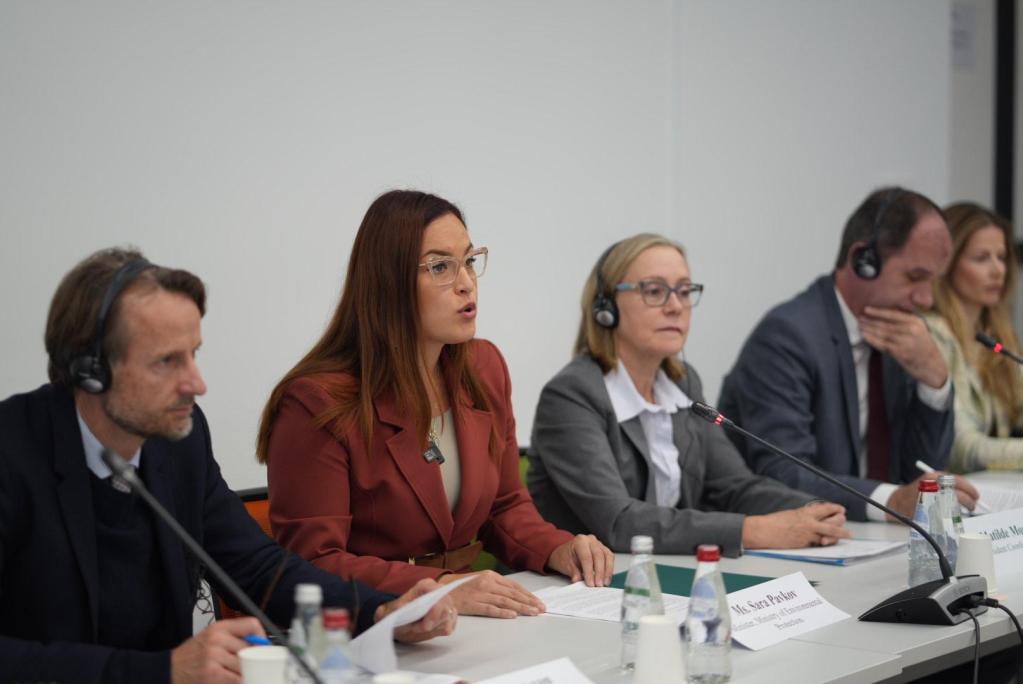
Press Release
21 October 2025
From Economic Growth to Shared Prosperity: Tackling Multidimensional Poverty in Serbia
Belgrade, 21 October 2025 - To mark the International Day for the Eradication of Poverty, the United Nations in Serbia and the Delegation of the European Union to Serbia hosted a high-level event at the EU House in Belgrade “From Economic Growth to Shared Prosperity – Tackling Multidimensional Poverty in Serbia”. The event brought together representatives from the Government of Serbia, the EU Delegation, UN agencies and international financial institutions to explore how Serbia can ensure that economic growth benefits everyone, especially the most vulnerable.Tackling poverty must remain at the heart of Serbia’s development priorities. Sustained investments in people are key to ensuring that no one is left behind as the country advances economically.“Reducing poverty is about building systems that protect people and create opportunity. Serbia has come a long way on this path, and through our partnership with the European Union we are helping make sure that growth and inclusion advance together — so that progress is felt in every community,” said Matilde Mordt, United Nations Resident Coordinator in Serbia.Reducing poverty and inequality calls for joint commitment, smart policies, and inclusive growth. The EU remains a strong partner to Serbia and the United Nations in building a society where prosperity is shared by all.“A society is only as strong as its most vulnerable members. Economic growth must go hand in hand with improving the daily lives of all people, especially those most at risk of poverty. The European Union has been a key partner in Serbia’s efforts to reduce poverty and promote social inclusion. Since 2014, the EU has invested over €91 million to strengthen social protection, education, and employment opportunities, with a focus on marginalized groups. The 2024 Growth Plan for the Western Balkans will unlock €1.6 billion for Serbia, with reforms centred on employment, skills, energy poverty, and a just transition,” stated Plamena Halacheva, Deputy Head of the EU Delegation to Serbia.Sustainable development hinges on investments in human capital. Access to quality education, healthcare, and social protection is fundamental to breaking the cycle of poverty and fostering inclusive growth.“In challenging times, protecting and expanding investments in human capital matters most. The return of such investments is real. Well-designed and sustained social spending does more than alleviate hardship. It strengthens people, builds resilience, and drives long-term growth,” said Deyana Kostadinova, UNICEF Representative and Co-Chair of the UN Results Group on Human Capital and Social Inclusion.Poverty is multifaceted and extends beyond income disparities. Access to essential services and opportunities to participate fully in social and economic life are crucial components of poverty reduction.“By enabling women's full economic participation and investing in healthy and active ageing, we are not just strengthening families today- we are fundamentally reducing poverty and building a resilient future for all generations in Serbia," stated Borka Jeremic, Head of Office of United Nations Population Fund (UNFPA) in Serbia and Co-Chair of the UN Results Group on Human Capital and Social Inclusion.Economic and fiscal policies play a crucial role in reducing inequality and ensuring that social investments reach those who need them most.“Our economic policy is directed towards improving the quality of life for our citizens. In line with this, we are continuously increasing the minimum wage, pensions, and salaries in the public sector. Unemployment was reduced to 8.6% in 2024, and employment has reached record levels, contributing to a widespread improvement in living standards. In 2024, real GDP grew by around 3.9%, one of the higher growth rates in Europe. The social component of the budget has been strengthened through better targeting social assistance programmes and increased allocations for health care and education. We strive to build a society in which everyone has the opportunity to prosper,” said Marko Jovanovic State Secretary at the Ministry of Finance. At the heart of poverty reduction is the principle that everyone deserves access to support systems and opportunities to live with dignity.“Sustainable employment growth is based on knowledge and dignified work, which contributes to a higher-quality labour market and a reduction in social inequalities. A key role in this lies in cross-sectoral cooperation and the alignment of education, economic development, and social protection policies. We particularly emphasise the importance of the Youth Guarantee, which is being implemented in cooperation with the European Union as a pilot project in Krusevac, Nis, and Sremska Mitrovica, covering 20 local governments. This project demonstrates how crucial institutional cooperation is in addressing employment and social inclusion issues,” said Djordje Todorov, State Secretary at the Ministry of Labour, Employment, Veteran and Social Affairs.Smarter investments in social sectors, particularly those benefiting vulnerable and marginalized groups, can drive more inclusive and sustainable growth. Reducing poverty goes beyond income; it requires strengthening the systems people rely on every day and expanding access to social protection, healthcare, education, employment, and energy-efficient housing to ensure that no one is left behind. The event closed with a clear message: poverty in Serbia remains a challenge, but it can be overcome if addressed with priority, adequate spending, and a sustained commitment to invest in people.
1 of 5
Press Release
08 October 2025
Financing Equality: Investing in Women, Investing in the Future
Financing Equality: Investing in Women, Investing in the FutureBelgrade hosted an inspiring international conference on 8 October 2025, bringing together governments, financial institutions and development agencies to reimagine how economies can work for women. The International Conference “Financing for Women’s Rights and Gender Smart Investments”, organized by UN Women Serbia in cooperation with the Embassy of Italy, the French Development Agency (AFD) and the European Bank for Reconstruction and Development (EBRD), sent a clear message that gender equality is not a cost but an investment that benefits everyone.Despite decades of progress, only a fraction of global resources reach women’s rights organizations, while most financial systems still fail to reflect women’s realities. The conference emphasized that closing gender gaps in the economy could generate trillions in growth, while innovative tools such as gender responsive budgeting (GRB) and gender smart investing can ensure that every euro spent contributes to equality.Opening the event, H.E. Luca Gori, Ambassador of Italy to Serbia, called for collective action to make financial systems inclusive, while H.E. Andreas von Beckerath, Ambassador of the European Union to Serbia, underlined that gender equality brings the highest returns – social and economic alike. “Through our new EU–UN Women project, we aim to address systemic barriers to women’s participation in the labour market, from access to finance and work–life balance to tackling gender stereotypes,” he said.Belén Sanz Luque, UN Women Regional Director for Europe and Central Asia, highlighted that women in the Western Balkans still earn up to 20 percent less than men and own less than a quarter of registered businesses, despite evidence that companies with women in leadership roles record up to 25 percent higher profits. “UN Women proudly supports gender responsive budgeting across the region, with Serbia standing out as a leader – 130 institutions are already applying it,” she noted.Speakers from EBRD, AFD and the Government of Serbia showcased how inclusive finance models, gender impact assessments and coordinated public–private initiatives can accelerate progress. During the panel Empowering Women through Smart and Inclusive Financing, experts from the OECD, European Commission and the Ministry of Economy and Finance of Italy shared proven practices showing that equitable financing is both achievable and transformative.The discussions led to a shared conclusion: aligning public budgets, private investments and climate finance with gender equality goals is key to building economies that are not only more just but also more resilient and sustainable.Related SDGs: 5, 8 , 10, 17 Finansiranje prava žena – investiranje u budućnostBeograd je 8. oktobra 2025. bio domaćin inspirativne međunarodne konferencije koja je okupila predstavnike vlada, finansijskih institucija i razvojnih agencija sa ciljem da se preispita kako ekonomije mogu bolje da rade za žene. Međunarodna konferencija „Finansiranje prava žena i rodno pametne investicije“, koju je organizovala kancelarija UN Women u Srbiji u saradnji sa Ambasadom Italije, Francuskom agencijom za razvoj (AFD) i Evropskom bankom za obnovu i razvoj (EBRD), poslala je jasnu poruku: rodna ravnopravnost nije trošak, već ulaganje koje donosi korist svima.Uprkos decenijama napretka, samo mali deo globalnih resursa direktno stiže do organizacija koje se bave pravima žena, dok većina finansijskih sistema i dalje ne odražava stvarne potrebe žena. Konferencija je naglasila da bi zatvaranje rodnog jaza u ekonomiji moglo da generiše bilione evra rasta, dok inovativni alati kao što su rodno odgovorno budžetiranje (GRB) i rodno pametno investiranje mogu da obezbede da svaka potrošena sredstva doprinose ravnopravnosti.Otvarajući događaj, ambasador Italije u Srbiji Luka Gori pozvao je na zajedničku akciju kako bi finansijski sistemi postali inkluzivniji, dok je ambasador Evropske unije u Srbiji Andreas fon Bekerat istakao da rodna ravnopravnost donosi najveći povraćaj - društveni i ekonomski. „Kroz projekat EU i UN Women želimo da se pozabavimo sistemskim preprekama za učešće žena na tržištu rada, od pristupa finansijama i ravnoteže između poslovnog i privatnog života do borbe protiv rodnih stereotipa,“ rekao je on.Regionalna direktorka UN Women za Evropu i Centralnu Aziju Belen San Luke ukazala je da žene na Zapadnom Balkanu i dalje zarađuju do 20 odsto manje od muškaraca i da su vlasnice manje od četvrtine registrovanih biznisa, iako podaci pokazuju da kompanije sa ženama na rukovodećim pozicijama ostvaruju i do 25 odsto veći profit. „UN Women s ponosom podržava praksu rodno odgovornog budžetiranja u regionu, a Srbija se ističe kao lider – 130 institucija već primenjuje ovaj pristup,“ naglasila je ona.Predstavnici EBRD-a, AFD-a i Vlade Srbije prikazali su načine na koje inkluzivni finansijski modeli, rodne analize uticaja i koordinisane javno-privatne inicijative mogu ubrzati napredak. Tokom panela „Osnaživanje žena kroz pametno i inkluzivno finansiranje“, stručnjaci iz OECD-a, Evropske komisije i Ministarstva ekonomije i finansija Italije podelili su uspešne prakse koje pokazuju da je pravedno finansiranje i dostižno i transformativno.Diskusije su dovele do zajedničkog zaključka: usklađivanje javnih budžeta, privatnih investicija i klimatskog finansiranja sa ciljevima rodne ravnopravnosti ključno je za izgradnju ekonomija koje su ne samo pravednije, već i otpornije i održivije.
1 of 5
Press Release
01 September 2025
UN: Joint programme “From Seed to Sustainability: Food Systems 4 All” completed
Belgrade, 1 September 2025 – Yesterday marked the official completion of the joint United Nations programme in Serbia “From Seed to Sustainability: Food Systems 4 All”, which was implemented from 12 July 2024 to 31 August 2025. The project aimed to strengthen multisectoral cooperation, enhance institutional capacities, and develop sustainable models of food production and consumption through the localization of the biodistrict model in Serbia, with a special focus on empowering women in rural areas.During the project, 189 farmers – including as many as 168 women – participated in six specialized trainings, which also included a study visit to Italy. National and regional dialogues on food system transformation were organized in Novi Sad, Niš, and Belgrade, bringing together over 130 participants from various sectors, thus creating a space for the exchange of experiences and alignment of priorities at both national and local levels. One of the key results of the project was the development of the Roadmap for Food System Transformation in Serbia, which serves as a strategic framework for future initiatives and priorities in this field. Its significance was further confirmed by the participation of Serbia’s delegation at the 2nd UN Food Systems Summit Stocktake (UNFSS+4) in June this year. On that occasion, Serbia reaffirmed its commitment to food systems transformation and gained an opportunity to exchange experiences with countries from around the world.In addition to strengthening institutional capacities, the project also brought important results in changing the way food is produced, consumed, and traded. A particular focus was placed on the localization of the biodistrict model in Serbia. Recommendations were developed for integrating this concept into the public policies of the Republic of Serbia, based on legal analyses and examples of good practice from the European Union. For the Kolubara Biodistrict, a long-term strategy, business plan, and marketing strategy were developed, laying the foundation for the sustainable functioning and recognition of this innovative model.“This project has demonstrated how much can be achieved when institutions, farmers, and communities work together. By strengthening coordination, empowering rural women, and piloting Serbia’s first biodistrict, we have set the foundations for more sustainable, inclusive, and resilient food systems,” said Matilde Mordt, UN Resident Coordinator in Serbia. “From Seed to Sustainability: Food Systems 4 All”, was a one-year initiative funded by the Joint SDG Fund, with support from the European Union and the governments of Belgium, Denmark, Germany, Ireland, Italy, Luxembourg, Monaco, the Netherlands, Norway, Poland, Portugal, the Republic of Korea, Saudi Arabia, Spain, Sweden, and Switzerland. This initiative in Serbia was led by the UN Resident Coordinator Office and implemented by the Food and Agriculture Organization of the United Nations (FAO), together with the UN Environment Programme (UNEP) and the UN Entity for Gender Equality and the Empowerment of Women (UN Women), with support from the UN Economic Commission for Europe (UNECE) and in collaboration with the Ministry of Agriculture, Forestry and Water Management of Serbia and other local partners.
1 of 5
Press Release
10 July 2025
National dialogue on the food system transformation in Serbia: A clear vision for better food quality
Belgrade, 10 July 2025 – Food systems represent a key segment of the Serbian economy, and Serbia has a clear vision for sustainable production and improving the quality of food, it was emphasized today at the National dialogue on the food system transformation in Serbia, held at the Chamber of Commerce and Industry of Serbia. The National Dialogue, organized by the Food and Agriculture Organization of the United Nations (FAO), in cooperation with the Ministry of Agriculture, Forestry and Water Management and the Chamber of Commerce and Industry of Serbia, brought together stakeholders with the aim of initiating an open discussion on sustainable food production, food system safety, and responses to climate change and global challenges. At the opening of the event, State Secretary in the Ministry of Agriculture, Forestry and Water Management, Jelena Blagojević, underlined that the food system transformation is not the issue of a single sector, but of society as a whole. “In recent years, through intensive work and more than 15 national and local dialogues, we have jointly identified 12 strategic directions that form the core of food system transformation in Serbia. These directions were not created in offices, but through conversations with farmers, entrepreneurs, teachers, experts, mothers, and young people from rural areas. This is why they are not just technical measures, but a reflection of the values we want to live by as a society – sustainability, fairness, inclusion, and health. What is crucial is that these directions do not remain at the level of recommendations. We are embedding them into the strategic documents and regulatory framework of our country – into the future Agriculture and Rural Development Strategy, into environmental protection strategies, into public policies on nutrition, education, and social protection. In this way, the food system transformation becomes part of our institutional fabric, something that permeates all policies that influence the lives and well-being of people,” explained State Secretary Jelena Blagojević. The panel discussion, titled “Food, people, and change: Local solutions for global challenges”, gathered representatives of the Chamber of Commerce and Industry of Serbia, the National Association for Organic Production Serbia Organica, the company LoginEKO, the Center for Development of Jablanica and Pčinja Districts, and the Ministry of Agriculture, Forestry and Water Management, who shared their experiences and insights with participants, followed by an open discussion. The National dialogue was organized within the project “From Seed to Sustainability: Food Systems 4 All”, a one-year initiative funded by the Joint SDG Fund, with support from the European Union and the governments of Belgium, Denmark, Germany, Ireland, Italy, Luxembourg, Monaco, the Netherlands, Norway, Poland, Portugal, the Republic of Korea, Saudi Arabia, Spain, Sweden, and Switzerland. This initiative in Serbia is led by the UN Resident Coordinator Office and implemented by the Food and Agriculture Organization of the United Nations (FAO) together with the UN Environment Programme (UNEP) and the UN Entity for Gender Equality and the Empowerment of Women (UN Women), with support from the UN Economic Commission for Europe (UNECE) and in collaboration with the Ministry of Agriculture, Forestry and Water Management of Serbia and other local partners.
1 of 5
Press Release
16 June 2025
Transforming Food Systems: Serbia’s Response to Current Challenges
Niš, 16 June 2025 – Serbia has the opportunity to build a food system that not only feeds, but also protects – people, nature, and future generations. That transformation must begin with comprehensive policies and a clear strategy, providing equal opportunities for all. This was the key conclusion of the “Subnational Dialogue on Food Systems Transformation in Serbia,” held in Niš.“Food System Serbia 2030 is not a distant vision, but a reality we are already shaping today: women lead the changes, children eat local and healthy food, and nature is preserved — not just in declarations, but through concrete decisions and local actions. This transformation must be a joint effort — and it has already begun,” said Lorenca Jahia, Senior Economist in the Office of the UN Resident Coordinator in Serbia.The dialogue brought together numerous local officials, agricultural producers, representatives of academia, civil society organizations, as well as the Office of the UN Resident Coordinator and UN agencies. Discussions focused on the urgency of change and on solutions that would enable local communities to become drivers of food systems transformation, one of the most important sectors in Serbia’s economy.“The UN’s ‘One Health’ approach reminds us that the health of people, animals, and the environment are deeply interconnected — and food systems lie at the intersection of these relationships. Building food systems that are climate-resilient, nature-friendly, and that promote health is essential to tackling today’s challenges. Whether through agroecology, reducing pollution, or preserving biodiversity, local actions play a key role in creating more resilient communities,” emphasized Pablo Sagredo Martín, Public Health Specialist at the UN Environment Programme (UNEP).The triple planetary crisis of biodiversity loss, climate change, and pollution — along with massive food supply chain losses and limited access to healthy diets — were at the heart of expert presentations and discussions. The consequences of these challenges are already strongly felt in Serbia, with data showing that since 2000, extreme weather events have caused more than €6.8 billion in damages, 70% of which is linked to droughts and high temperatures.“Preserving the health of people and nature is essential for the survival of civilization, and change begins with us — through clear and decisive public policies that place health and solidarity ahead of profit and consumption,” stated Professor Denis Kučević of the Faculty of Agriculture in Novi Sad. Dr. Mirjam Vujadinović Mandić of the Faculty of Agriculture in Belgrade added: “Ensuring sufficient quantities of quality food requires systematic adaptation to climate change at all levels, while protecting and wisely managing key resources such as water and soil.”Participants also discussed the potential of forming biodistricts and expanding organic agriculture in Serbia, particularly since less than 1% of arable land is currently under organic production.Biodistricts are geographic areas based on the principles of organic farming, where farmers, citizens, tourism and hospitality providers, educational and research institutions, public authorities, and associations collaborate to develop sustainable local food systems, improve local resource management, and foster economic and socio-cultural development.The dialogue further highlighted the crucial role of innovation in strengthening the entire food value chain, enabling faster and more efficient development, while reducing agricultural waste. Participants shared examples of good practices from Serbia and the EU and explored solutions adaptable to the local context.“Innovation is key to reducing food loss, but its successful application requires strong institutional support and fair resource distribution for all, especially the most vulnerable,” said Dr. Kata Trifković from the Irish company Inlecom Commercial Pathways. Marko Marić, Director of Eko Agrar in Čajetina, added: “Global measures and collective awareness are important, but even more crucial is for local actors to take responsibility and actively create solutions that can inspire others.”The Subnational Dialogue on Food Systems Transformation is one in a series of events preparing Serbia to participate in the upcoming UN Food Systems Summit (UNFSS+4) in July 2025 in Ethiopia, and to ensure the inclusion of national and local actors in planning and implementing a just transformation of food systems in Serbia.The dialogue was part of the project “From Grain to Sustainability – Food Systems for All”, a one-year initiative financed by the Joint SDG Fund, with support from the European Union and the governments of Belgium, Denmark, Germany, Ireland, Italy, Luxembourg, Monaco, the Netherlands, Norway, Poland, Portugal, the Republic of Korea, Saudi Arabia, Spain, Sweden, and Switzerland. In Serbia, the initiative is led by the Office of the UN Resident Coordinator and implemented by the Food and Agriculture Organization of the United Nations (FAO), together with UNEP and UN Women, supported by the UN Economic Commission for Europe (UNECE), in cooperation with the Ministry of Agriculture, Forestry and Water Management of the Republic of Serbia and other national partners.The event was organized by the Center for Environmental Improvement as UNEP’s implementing partner, in collaboration with the local association ENECA.
1 of 5
Latest Resources
1 / 11
1 / 11




















